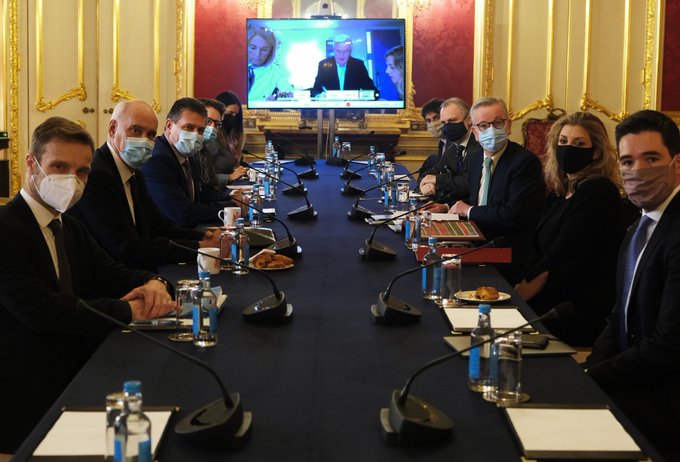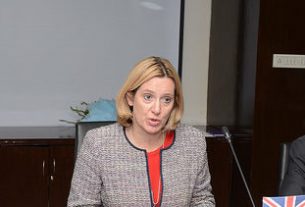As the UK government continues to urge businesses to prepare for a no-deal outcome, Irish Minister for Foreign Affairs, Simon Coveney, told reporters that a Brexit trade deal is ‘likely’ after all. After missing Boris Johnson’s mid-October deadline and the ensuing stand-off, Britain and the EU put their differences aside once more and recommenced negotiations. The two sides published a joint paper on the Organising Principles on Wednesday, thus kick-starting intense seven-day-a-week negotiations. The first phase of the latest talks ran from 22 to 25 October in London, with current face-to-face negotiations ongoing in both London and Brussels.
Speaking at the Irish Farmers Journal webinar on Tuesday, Simon Coveney said a positive outcome now appeared ‘likely” despite difficulties. Adding that the talks had entered a ‘very serious zone’ fraught with challenges, the Irish Foreign Ministers said:
“We’re likely to get a deal, but it won’t be easy.”
The next fortnight will be crucial in determining whether the UK will have venture into the unknown in January 2021 with or without a deal. Reaching a deal by mid-November would allow sufficient time for EU member states to ratify a Brexit trade deal. It would also provide more clarity and certainty for British businesses.
For its part, Ireland is preparing for what’s to come on 1 January:
“We’ve got to be ready for January 1, there’s going to be no more extensions of time, no more transition periods.
“Time is up at the end of the year.”
As Ireland exports five and a half billion worth of food and drink to Britain every year, a no-deal outcome, and the consequential WTO-trade standards, is likely to make Irish exports uncompetitive. WTO trading would see the imposition of tariffs amounting to as much as 1.5 billion on Irish food and drink produce.
Brexit trade deal – the sticking points
The main areas of contentions have not changed and include the level playing field, fishing rights, governance, collaboration and data sharing in the fight against crime, trade of services and goods, and financial services.
In terms of the level playing field, the EU wants to write commitments that would oblige Britain to limit subsidies into the legal text of the trade deal to protect EU firms from unfair competition. For its part, the UK feels this is a sovereign issue.
Continued access to UK waters for EU fishing fleets provide the UK with somewhat of a trump card. The EU is not willing to sacrifice its fishing industry. Ultimately, the two sides will have to agree on how to divvy up the catch in the long-term.
On the issue of governance, the UK and EU are seeking to ensure that the terms of the trade deal are followed. Failures in that regard would see both sides hit out with tariffs and other penalties.
The UK and the EU want to continue collaborating in the fight against crime. However, from 1 January, the UK will no longer have full access to the EU database. Rules around data access, sharing, and storage have yet to be worked out as has the legal framework thereof.
Concerning the trade of goods and services, both sides agree on tariff-free trading in principle. Here, the sticking point centres around access to the EU market for professionals including lawyers and accountants, as well as rules for the UK automotive sector.
Finally, regarding financial services, the UK wants a continued involvement of the City of London with Brussels eager to scale down the role of the London market infrastructure.




